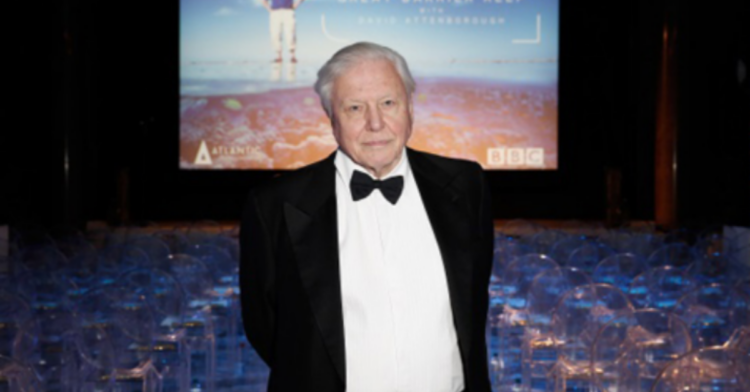Since the 1950s, naturalist and media personality Sir David Attenborough has made it his mission to educate the public about the wonders of the natural world through an impressive catalogue of books and documentaries.
His life’s work has earned him an enviable collection of awards — including the honor of knighthood — and has also made him a beloved icon both in the United Kingdom and throughout the world.
Of course, while they’re not often the first thing we picture when we imagine nature, it’s true that viruses are just as much of a part of it as anything else. And considering what crises they can responsible for, it’s certainly not hard to appreciate the importance of understanding them as intimately as any plant or animal life.
And a recent interview makes it clear that Attenborough understands the consequences that can come from a lack of understanding about how they work as well as anyone.
When Attenborough sat for an interview with Channel 4’s Jon Snow, it didn’t seem as though he would be discussing the COVID-19 pandemic.

Indeed, the first half of the interview chiefly concerns a government-commissioned report known as the Dasgupta Review, to which Attenborough contributed a foreword.
This report calls on governments to transform their economic policies that harm the natural world and breaks down biodiversity in economic terms as a bid to get this message across in terms world leaders can appreciate.
However, Snow eventually transitioned away from that discussion to ask Attenborough what the COVID-19 pandemic says about our relationship with nature.

At first, Attenborough began his answer by speaking broadly about how it and the pandemics that came before it confirm and remind us how much we’re inescapably part of the natural world.
As he put it, “We benefit from it and pay the penalties when things go wrong.”
But while he acknowledged that pandemics are nothing new, what sets this one apart is the “ease with which one pandemic can now overcome the entire world.”

After all, the easier it gets for any of us to go anywhere in the world in a matter of hours, the easier it becomes for the viruses we can carry to do the same.
From there, Snow asked Attenborough what he says to those who are either scared to vaccinate themselves against the virus or politically opposed to doing so.

Attenborough referred to this attitude as “an ignorance of medical facts.”
It is nonetheless one that he expressed some empathy for as he could see how easy it is for someone to mistrust vaccines when they don’t understand what they actually do and how they work.
As he said, “After all, you’re dealing with something precious. You’re dealing with your own body, your own life and you wish to protect that, quite right too.”
But indeed, such attitudes become a public health crisis when someone perpetuating them gains an upper hand to frighten those with a similar lack of understanding into not trusting vaccines.
However, Attenborough seemed optimistic about how prevalent anti-vaccine attitudes are becoming in recent times.

As he said, “Fortunately, it seems to me that more and more people are understanding what this is. And the majority of the population, I’m sure, understands perfectly well that this is a great triumph of medicine.”
CNN reported that Attenborough received his own vaccine in mid January and he said to Snow that while some friends of his felt under the weather afterwards, he experienced no issues.
h.t: Channel 4

















































